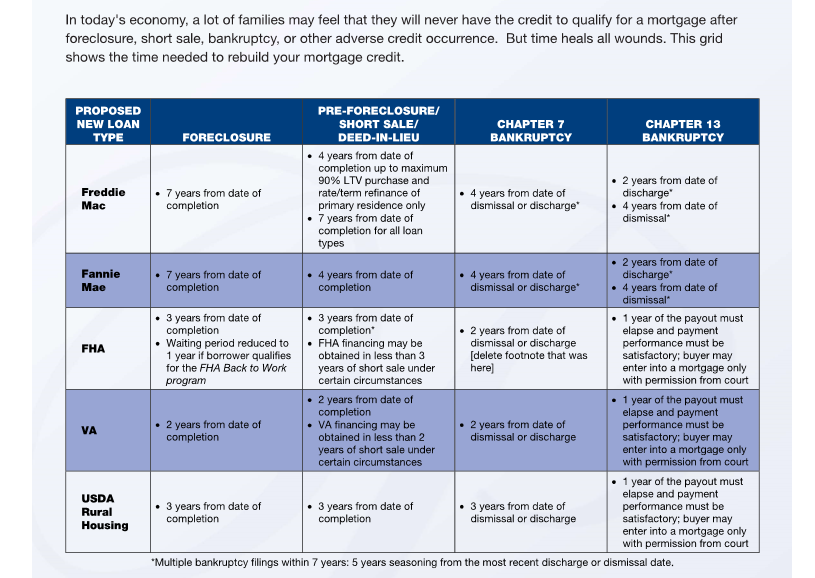Freddie Mac and Fannie Mae Underwriting Guidelines for Mortgage Approval
For these reasons, conventional mortgages are more difficult to obtain with stricter lending requirements in regards to credit score, down payment, debt to income ratio, mortgage insurance and previous bankruptcies or foreclosure.
Let's take a look at each subject below:👇
Credit Scores:
Fannie Mae and Freddie Mac Require a minimum 620 credit score.
You have three credit scores from Experian, Equifax, and Transunion, and they take the middle score, throwing out the high and low score. The higher the credit score the better pricing you will get on the rate and mortgage insurance along with your down payment.
Ideally for higher credit score buyers, say over 680, and with at least 3% down payment with a low debt to income ratio.
Down Payment:
Conventional mortgage loans require a minimum of 3% down payment. The more you put down, the better the rate, lower the mortgage insurance, and greater chances of getting approved.If you put down 20%, then you will not have to pay mortgage insurance, or if you refinance an existing loan that has mortgage insurance, you can potentially get rid of the mortgage insurance if your equity position is less than 20% of the home's value.
Debt to Income:
Conventional Mortgage loans typically will not allow for a back-end ratio of over 45%. They're two ratios, the front-end and back-end ratio. The front-end ratio is a percentage of the total house payment of your total gross monthly income. The back-end ratio is the new total house payment along with the monthly payments on your credit report divided by your total gross monthly income.
For example, if you make $3,000 gross a month, your total backend ratio would me maxed out at 1,350 a month. So if you had $300 in monthly payments on the credit report, this would allow for a maximum house payment of $1,050.00
Mortgage Insurance:
Mortgage insurance is typically cheaper and less expensive on conventional mortgage loans. They're competing private mortgage insurance companies competing for the business with the names of MGIC, Radian, Essent, Genworth and Ugcorp.
Conversely, it is not like Government insured FHA, VA and USDA mortgage loans where all applicants get the same premiums regardless of credit score, down payment and debt to income ratio. Mortgage insurance is usually expressed as a monthly premium, with no upfront mortgage premiums like FHA, VA, and USDA government loan programs.
The higher the credit score, lower debt to income ratio and more nd can be removed once you reach 80% equity position in the home.
Bankruptcies and Foreclosure:
Bankruptcy (Chapter 7 or Chapter 11)
Bankruptcy (Chapter 13)
- two years from the discharge date, or
- four years from the dismissal date.
.Foreclosure
Deed-in-Lieu of Foreclosure, Pre-foreclosure Sale, and Charge-Off of a Mortgage Account
- A deed-in-lieu of foreclosure is a transaction in which the deed to the real property is transferred back to the servicer. These are typically identified on the credit report through Remarks Codes such as “Forfeit deed-in-lieu of foreclosure.”
- A pre-foreclosure sale or short sale is the sale of a property in lieu of a foreclosure resulting in a payoff of less than the total amount owed, which was pre-approved by the servicer. These are typically identified on the credit report through Remarks Codes such as “Settled for less than full balance.”
- A charge-off of a mortgage account occurs when a creditor has determined that there is little (or no) likelihood that the mortgage debt will be collected. A charge-off is typically reported after an account reaches a certain delinquency status, and is identified on the credit report with a manner of payment (MOP) code of “9.”












